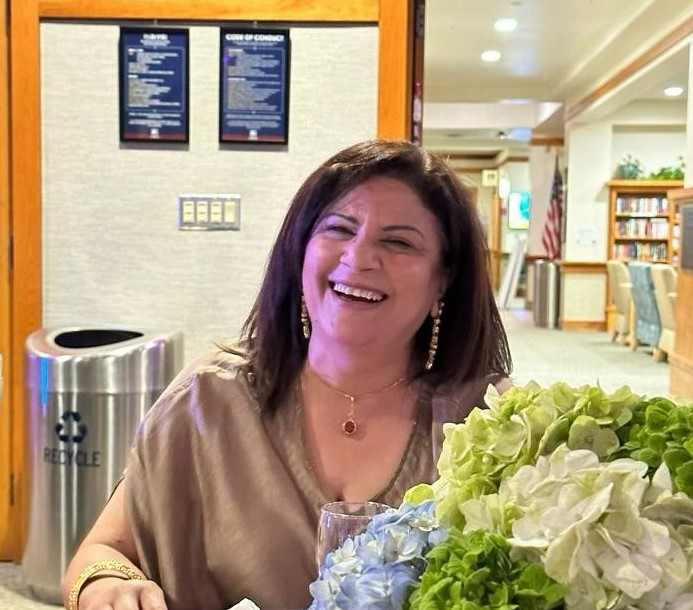LGBTQ writers share perspectives on PRIDE
Panelists share personal stories and insights on what it means to be LGBTQ in today’s intensely divided social and political climate.
 Representative Image. / Pexels
Representative Image. / Pexels
The 55th annual San Francisco Pride Parade is scheduled for June 29, 2025. It kicks off around 10 a.m. on Market Street, starting from Embarcadero Plaza and finishes near Civic Center. Aruna Rao, founder and Executive Director of Desi Rainbow, at an American Community Media briefing shared the anguish of South Asian parents with a LGBTQIA+ child.
Desi Rainbow reaches out to South Asians
“It has been a journey for me to understand how to come out on behalf of my child because he doesn’t want to come out personally to the whole world. In our immigrant South Asian communities, our extended family and friends are as important to our children’s coming out process as their immediate nuclear family. Their acceptance makes or breaks a child’s ability to live freely, authentically,” Rao said.
Desi Rainbow Parents & Allies was conceived in 2017 around Rao’s dining table. South Asian families and friends of lesbian, gay, bisexual, transgender, queer, and questioning individuals learn about LGBTQIA+ issues, find community with one another, and learn how to better support their loved ones. Their mission is to foster understanding and acceptance among families, with the goal of affirming and celebrating our LGBTQIA+ loved ones.
“We are living at a time of great danger for the trans community. This is a very unsafe environment for all trans children and adults. We are trying really hard to create affirmation within the South Asian community where people feel safe, and also work within the larger context of trans rights, and support trans children and adults in the US.”
“For my husband, this is his child, so when my son came out my husband said to him “You know, I love you, I don't understand any of this, but never doubt that I love you.”
Richard, son of Mexican immigrant parents, grew up in Sacramento
Richard Rodriguez, award-winning author who came out in his collection of essays ‘Days of Obligation’ shared his experience.
“I didn't choose it. I was chosen to be gay. Being gay gave me the world. It gave me access to experiences beyond my immediate family. Because I was different. I was reading about lives that were different. I belonged to a larger world precisely because of that difference. I never thought to celebrate my homosexuality. Because it gave me freedom. It took me away from the house. It gave me books. It taught me to imagine myself in large ways, as being more than a person from Sacramento, California, from a Mexican-American working-class family. It gave me the world!”
Helen Zia was queer and invisiblized
Helen Zia, journalist and activist for Asian American and LGBTQ rights, and founder of The Vincent Chin Institute said as an Asian American female her sexual orientation placed her in a triple jeopardy position. “We were completely invisible as Asian Americans. As a female and then a lesbian this added another layer of invisibility, even within my own community.”
When she was growing up LGBTQI people were closeted as there was not just discrimination, but hate and violence. If one did identify as queer the person could be arrested or even killed. They would lose their job, children, families, and communities.
“I was in my early twenties. I had no idea what it meant to be lesbian. How do I know I'm a lesbian?”
“I was also very, very involved in the feminist movement. I was invited to a community meeting of my fellow activists, Asian, Black and Latinx activists. I was told to sit in the middle of the room in a semicircle. They said, Helen, we've noticed that you're hanging out with a lot of lesbians. We need to know if you're a lesbian because there are no homosexuals in the Black community. The Asian leader also said, yes homosexuality is a sign of petty bourgeois, white, self-indulgence. They have no business being in our communities of color, and if you are one we don't want to have any association with you. You would damage our organization.”
Tell us, are you a lesbian?
“No, I'm not.”
For me, it was stepping into the closet and slamming the door shut.
I didn't want to think about it anymore. I didn't go to any more of my women's movement meetings.
Many people believe it's a White disease
“It's not something in our communities,” said Zia.
Richard remembers AIDS.
“There was always that feeling that we were diseased in the city. That there was something dangerous about us.”
Challenges have increased under the present administration. A series of executive orders deny the legal identity, social identity, cultural identity and the very existence of transgender people.
Transgender people could not apply for a passport which showed their Identity as it is as a trans person, said Rao in alarm.
“My son, who's a transmasculine person, would have a passport which said that he was female. My son essentially has a beard, and a mustache. He looks like a man,” said Rao. “Imagine the fate of somebody like my son, who is forced to have legal identification that does not acknowledge his identity. It compromises his safety; it increases gender dysphoria.”
Transgender soldiers are being dishonorably discharged from the military after having served many years.
This year Pride has taken on a new urgency.
ADVERTISEMENT
ADVERTISEMENT
E Paper
Video

 Ritu Marwah
Ritu Marwah .jpg)
.jpg)
.jpg)


.jpg)



 (1).jpg)


Comments
Start the conversation
Become a member of New India Abroad to start commenting.
Sign Up Now
Already have an account? Login